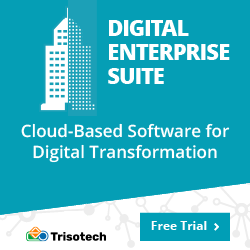You’re Going Cloud Native—Don’t Forget Cloud-Native API Management
Blog: The Tibco Blog
This is part two in a three-part series on the evolution to cloud-native application development. Read last week’s introduction to cloud-native app development, and check back in soon for a special cloud-native announcement.
Last week, we introduced you to cloud-native application development and deployment; today we’re going to talk about cloud-native API management and it’s vital role in your digital business strategy. The goal of cloud-native is faster development, faster deployment, more control, and a more agile business.
API management includes the creation, productization, security, and analytics of APIs. A cloud-native API management platform is designed to operate natively within your broader cloud-native stack of tooling and processes. It provides a lightweight, easy to deploy solution that manages all of your APIs seamlessly, regardless of where those services run.
Here are a few of the top benefits that will make you want to invest in a cloud-native API management platform:
Containers and Beyond
Is container management tool Kubernetes part of your cloud-native strategy? The ability to deploy apps or microservices within containers, and orchestrate those containerized services, is a noted benefit. You can deploy and isolate microservices and complete applications that are able to scale and run independently. However, not all apps are developed with such capabilities. With a cloud-native API management platform, you can deploy the platform in a cloud-native manner, while still managing API-led services that reside anywhere in your enterprise ecosystem, cloud or not.
API-Led Design
Without APIs, there is no integration, and API-led integration is the key to a seamless and efficient digital business. This is why cloud-native apps are always developed under the pretense that they will connect to and work together with a variety of other apps. Cloud-native begins and ends with utilizing and connecting to a variety of systems and microservices via APIs to encourage interoperability and reuse, key tenets of efficiency.
Cloud Agnostic
Taking advantage of the cloud doesn’t mean relinquishing control of your assets. With cloud-native API management, you maintain a fully containerized, portable, and scalable platform, deployed how you choose. Cloud-native means deploying all services on-premises or in a private cloud, including public cloud container services like Azure Kubernetes Service (AKS) or AWS Elastic Container Service (ECS). You can continue to take advantage of data center investments that you have, or those of a public or private cloud, while still benefiting from the elastic and agile nature of the cloud.
DevOps Alignment to Drive Agility
DevOps is a strategic IT framework implemented during your cloud-native evolution that drives more efficiency and agility for your digital business. Each microservice developed within a cloud-native app goes through an independent life cycle, managed via an agile DevOps process. For the app to function properly, multiple continuous integration/continuous delivery (CI/CD) routes work together to deploy and manage the application. Cloud-native API management is a seamless fit with DevOps app development and deployment models, because the platform operates within the same containerized environments as the apps.
The Bottom Line: Deploy Anywhere, Manage Everywhere
Evolving to cloud-native architecture is top of mind for all digital businesses trying to stay ahead of the curve. That’s not always easy, given the amount of legacy on-premises tools and services that are too expensive and time-consuming to replace in the immediate future. A cloud-native API management solution gives you the ability to create, manage, and analyze your APIs seamlessly with cloud-native tooling, and this will align with your company’s overall cloud-native evolution. Further, a single view of all on-premises, cloud, and edge APIs is key to enterprise efficiency and transformation. The flexibility to begin developing green field cloud-native services, while also maintaining operations on hybrid architectures, is what really makes cloud-native API management valuable.
Enterprises continue to trend towards cloud-native solutions, and implementing that into your API management platform is crucial for a complete digital transformation. To learn more about how TIBCO® can help you learn more about cloud-native technologies, check out TIBCO.com, and stay tuned for our special announcement on Feb 19.
Leave a Comment
You must be logged in to post a comment.








